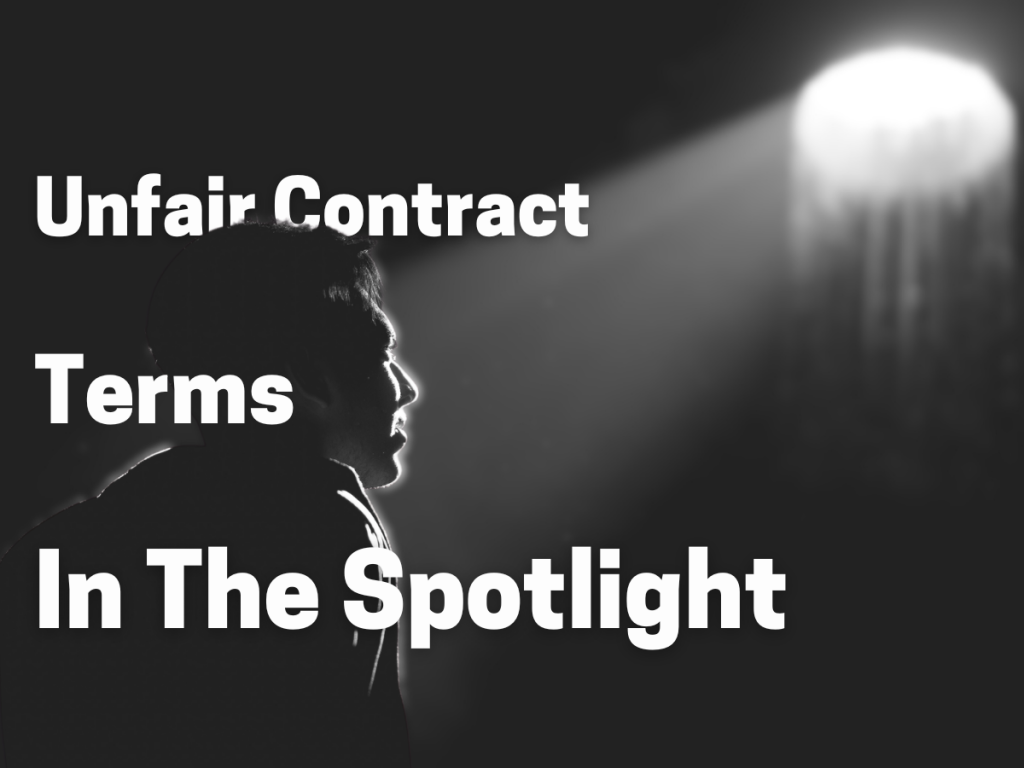Unfair Contract Terms in the Spotlight

Have you ever felt that as an artist or small arts business, you had to accept a contract which seemed one-sided but there was little opportunity for negotiation? This may have been a website terms of use, or supplier terms, or a retail lease for your new creative hub.
Well, take note – legislation protecting against unfair contract terms in standard form contracts a has improved.
What is a standard form contract?
A standard form contract can be described as a take it or leave it contract. Generally, the person or organisation issuing the contract doesn’t give the person or organisation receiving the contract much, if any, room to negotiate or make changes.
Examples of standard form contracts include:
- Website Terms of Use
- Conditions of Sale
- Supplier Terms
- Retail Lease Agreement
- Conditions of Entry
What are unfair terms?
An unfair term:
- Causes a significant imbalance – for example a one-sided right to terminate a contract no matter how trivial.
- Is not reasonably necessary to protect the interests of the person with the advantage – for example a licensee obtaining exclusive world-wide rights forever when they don’t need those broad rights.
- Could, cause detriment to someone if included in the contract – an example being some automatic renewal clauses that could make you financially worse off if you don’t terminate in time.
What is the legal change?
The laws that talk about unfair terms, the Competition and Consumer Act 2010 and the Unfair Contract Term regime, have recently changed. These changes could apply to you if you are given a standard form contract or use one in your business.
In this article we will cover how the changes:
- Protect more small businesses.
- Affect your options in entering a standard form contract.
- Introduce penalties.
These changes take effect for new contracts and renewed and varied contracts from 10 November 2023.
What is considered a small business under the new legislation?
The law now protects more small businesses. That is because the definition of a small business has expanded from a business that employs under 20 staff to one that employs up to 100. Businesses that generated less than $10 million turnover last year are also considered small businesses.
What else is considered under the new legislation?
A contract can be considered unfair even if :
- You are have the option to accept or reject the terms.
- You select a term from a range of options.
- Someone else had opportunity to negotiate terms of a similar contract.
New penalties apply, what are they?
Unfair contracts are now subject to penalties or fines for the first time. In fact, each separate unfair term in a contract can be fined separately.
For a business the penalty can be at least $50 million and for an individual $2,500,000.
Top 5 take aways:
- Standard form contracts are those that the person receiving the contract has little say in – if you’ve ever ticked “Yes, I have read the terms and conditions” you’ve likely agreed to a standard form contract.
- The chance to select from a range of terms isn’t necessarily fair.
- Serious penalties now apply to individuals or businesses that have unfair contracts. More small businesses are now protected because the definition of a small business has changed. If you are given a standard form contract as part of your arts practice, Arts Law can review whether the terms are fair.

